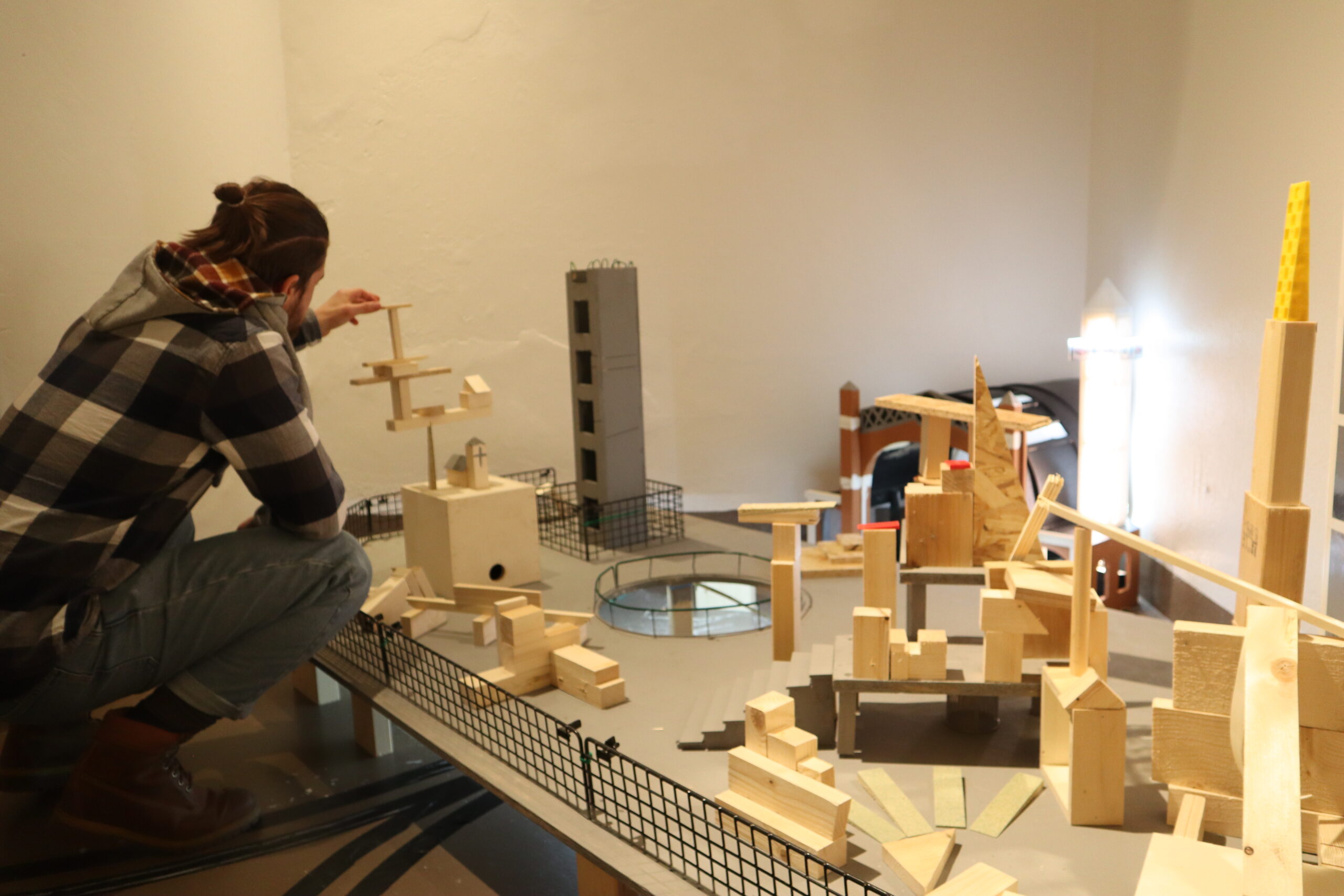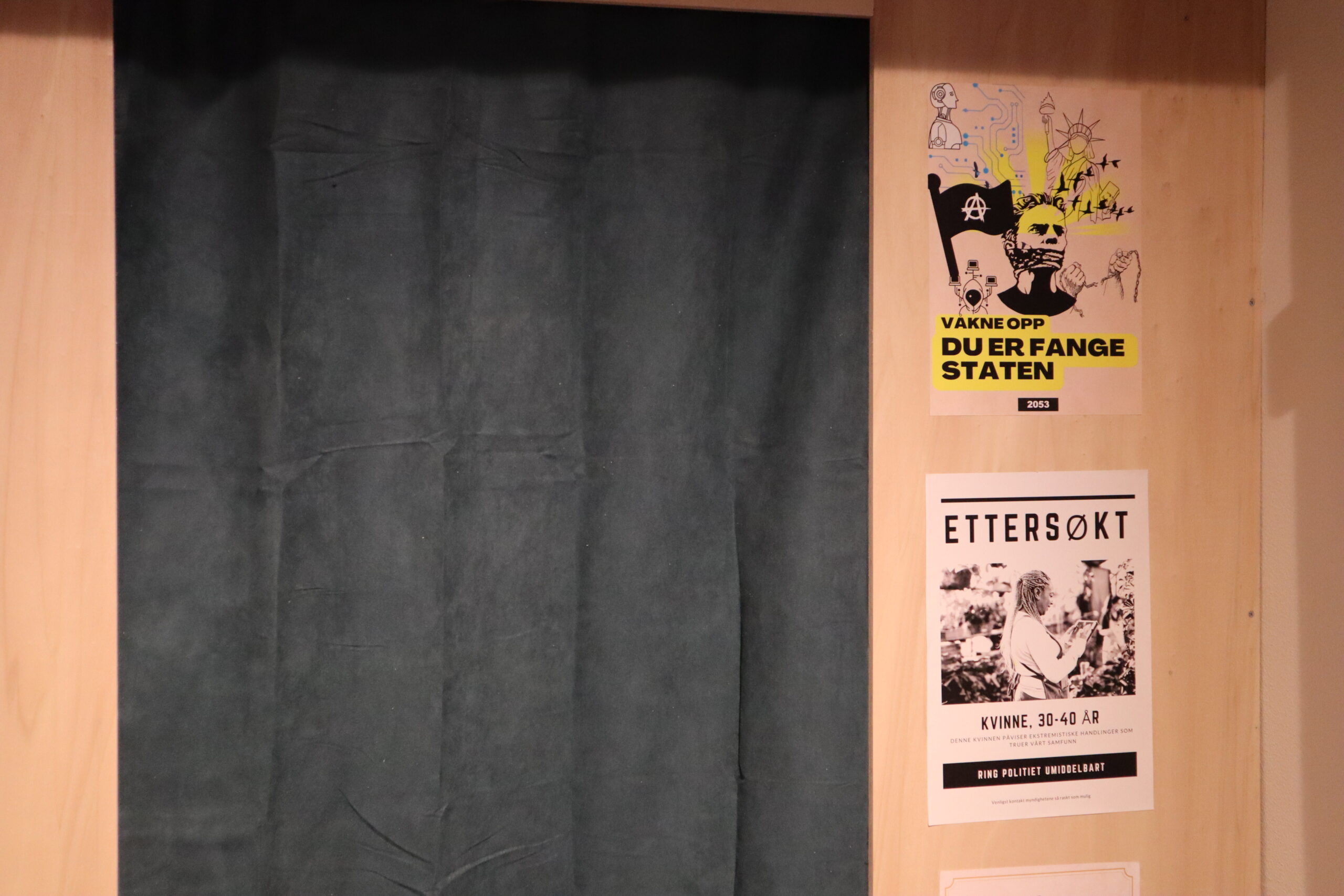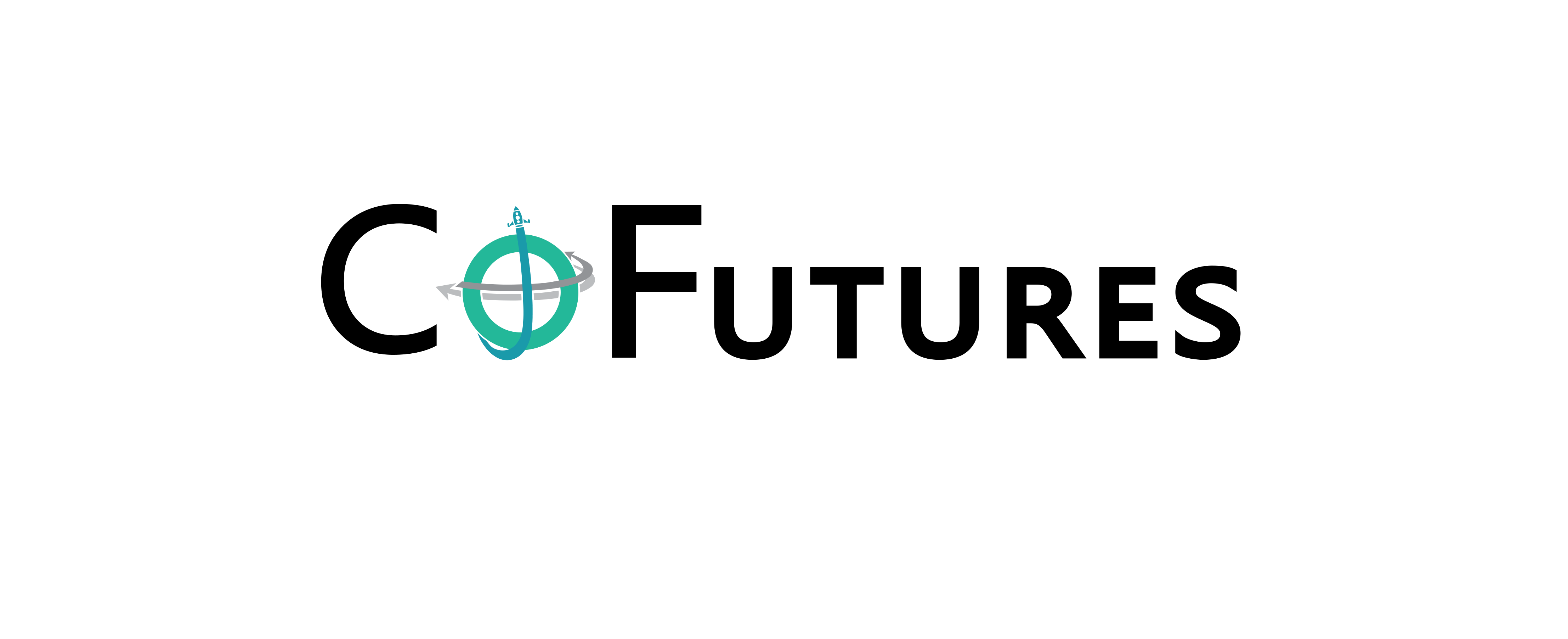THE LID COUP
2055
In the early 2050s, a massive concrete platform (known locally as the Lid) was built above the web of train tracks east of Oslo Central Station. Making use of this space for city development was originally a good idea, but in the decision-making process that followed, the opinions of the people were overrun by commercial interests. In 2052, the City Council gave concession to the building of a huge shopping mall on the Lid. Protests grew as construction started. In 2054, the half-built mall was taken over by neighborhood activists. A thriving free-state community developed. The occupants continued building with whatever materials they could get their hands on. What was once a grey monstrosity of concrete and steel developed into a colorful and creative-chaotic city scape.

The process behind THE LID COUP (N. Lokkuppet)
Workshop 1, autumn 2021
The idea of a rebellion against privatization, gentrification and a lack of participatory processes came about through four workshop evenings at the Intercultural Museum in October and November 2021. The scenario is rooted in the current situation in the area, where the locals often feel overlooked or bypassed by the municipality and private companies when properties are distributed, regulated, and developed.
Participants: Anja Bergersen, Kristin von Hirsch, Mona Al-Karbawi, Glenn Andre Richard.
Workshop 2, spring 2022
In a choreographic treatment of the Lid coup led by Mia Habib at the Intercultural Museum, the participants built on the ideas from Workshop 1 and worked with the Lid community’s spatiality, materiality, and physicality. The participants walked around Grønland to see what scrap they could find that could be reused. They then tried to build something from what they found.
Participants: Dominykas Arlauskas, Javier Cornejo, Ashvin Neel Jeyananthan, Mona Al-Karbawi, Hashim Mayow.
Workshop 3, autumn 2022
The youth editorial board Ildfluene was commissioned to make a fictional documentary or ‘mockumentary’ about the Lid coup. The result was a new script that added a digital aspect to the rebellion. In the future, it will not be sufficient to physically occupy an area. To avoid government control, hackers are also required.
Script and direction: Nguyen Dichino (Ildfluene), with assistance from Kristin from Workshop 1. Camera and POV: Silvia Anaman (Ildfluene). Actors: Henry Lai, Lilja Dikvold, Dunya Hamadeh, Maisha Moazzem, Ali Al-Bara Zanchi and Life Juma (Forandringshuset). Rigging: Sophia Oliva Borgen, Ella Bothner-By and Theo Campbell Bettum.
Design and production of the lid model: Øyvind Gangeskar Berge

Challenge questions
By CofuturesIn thinking about climate change, we often talk about the problem of excessive population, but in reality, it is excessive consumption rather than population that is the problem: the richest 10% of the world are responsible for 50% of the CO2 emissions, and the poorest 50% are only responsible for 10% of these emissions. If we take a consumption based rather than emissions based approach to climate futures, Norway, being one of the richest countries, is one of the worst polluters on the entire planet, both per capita and as a country. Our future – here in Norway, but also globally – lies in “degrowth”: the planet is rapidly reaching its limit due to our excessive consumption, and we need to think not just recycling, but upcycling, not just re-use, but non-use, which means we must consume significantly less. It also means taking steps to challenge the global consumption economy: for instance, reducing our reliance on fast fashion, reducing food consumption from questionable and environmentally damaging sources, and forcing industries to adopt more sustainable production practices worldwide. At Lokkupp, the degrowth revolution has already happened, what used to be a shopping mall is now a free city, and its inhabitants seek to live a life that is much more sustainable, where they can try out new political, economic, and social arrangements for a better future. Since Norway – and Norwegians – love nature, can you imagine some radical steps to degrowth, decarbonize, and consume less of everything: food, electronics, clothes, etc, and reduce our carbon footprint? If you can imagine that, what would it take for you to adopt this lifestyle? What is the future you would want to live in?
